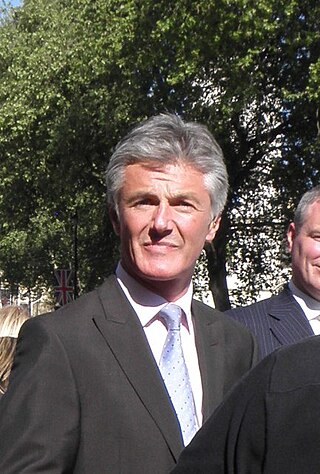| |||||
| Decades: | |||||
|---|---|---|---|---|---|
| See also: | |||||
Events in the year 2010 in Chile.
| |||||
| Decades: | |||||
|---|---|---|---|---|---|
| See also: | |||||
Events in the year 2010 in Chile.



The territory of Chile has been populated since at least 3000 BC. By the 16th century, Spanish invaders began to raid the region of present-day Chile, and the territory was a colony between 1540 and 1818, when it gained independence from Spain. The country's economic development was successively marked by the export of first agricultural produce, then saltpeter and later copper. The wealth of raw materials led to an economic upturn, but also led to dependency, and even wars with neighboring states. Chile was governed during most of its first 150 years of independence by different forms of restricted government, where the electorate was carefully vetted and controlled by an elite.
A mining accident is an accident that occurs during the process of mining minerals or metals. Thousands of miners die from mining accidents each year, especially from underground coal mining, although accidents also occur in hard rock mining. Coal mining is considered much more hazardous than hard rock mining due to flat-lying rock strata, generally incompetent rock, the presence of methane gas, and coal dust. Most of the deaths these days occur in developing countries, and rural parts of developed countries where safety measures are not practiced as fully. A mining disaster is an incident where there are five or more fatalities.

Miguel Juan Sebastián Piñera Echenique was a Chilean businessman and politician who served as president of Chile from 2010 to 2014 and again from 2018 to 2022. The son of a Christian Democratic politician and diplomat, he studied business administration at the Pontifical Catholic University of Chile and economics at Harvard University. At the time of his death, he had an estimated net worth of US$2.7 billion, according to Forbes, making him the third richest person in Chile and the 1177th richest person in the world.
Prison in Chile are generally poor. Prisons often are overcrowded and antiquated, with substandard sanitary conditions.

The 2010 Chile blackout was an electric power outage that affected most of Chile on March 14, 2010. It began at 8:44 pm on Sunday and continued into the next day. The power was restored in a few hours in some areas, and by midnight in most areas, except in the Biobío Region.

The 2010 Copiapó mining accident, also known then as the "Chilean mining accident", began on 5 August 2010, with a cave-in at the San José copper–gold mine, located in the Atacama Desert 45 kilometers (28 mi) north of the regional capital of Copiapó, in northern Chile. Thirty-three men were trapped 700 meters (2,300 ft) underground and 5 kilometers (3 mi) from the mine's entrance, and were rescued after 69 days.

Laurence Nelson Golborne Riveros is a Chilean engineer and entrepreneur. He was minister of public works until November 7, 2012, when he announced his decision to run for President of Chile. He previously had been bi-minister of Mining and Energy in the administration of President Sebastián Piñera. He withdrew from the presidential campaign on April 29, 2013, after two consecutive public scandals.

The San José Mine is a small copper-gold mine located near Copiapó, Atacama Region, Chile. The mine became known internationally for its collapse in 2010, which trapped 33 miners 700 metres (2,300 ft) underground. Its workings are reached by a long sloping roadway with many spiral turns, not by a vertical mineshaft.

Timothy Melton Willcox is a British journalist who formerly worked as a presenter for BBC News. He presents news programmes on BBC World News and the BBC News Channel. He is probably most recognisable for presenting the BBC's live coverage from Chile during events surrounding the Copiapó mining accident and anchoring the BBC's live daytime coverage during the early days of the Cairo January 2011 Egyptian revolution.

The 2010 Copiapó mining accident occurred when the San Jose Mine near to Copiapó, Chile, collapsed, leaving 32 miners of Chilean nationality and one Bolivian miner trapped inside about 700 metres below the surface. The men were trapped in the mine for 69 days before being rescued. The discovery of the miners and their eventual rescue received global attention, with over 2000 members of the media reporting from the San Jose Mine. Global leaders expressed good wishes for the rescue and congratulations upon its successful completion.

María Cecilia Morel Montes is the widow of the former President of Chile Sebastián Piñera, and as such is a former First Lady of Chile. Morel was also the Director of the Sociocultural Area of the Presidency during both her husband's terms as President.

The Fénix capsules were three metallic containers that were used for the rescue of 33 trapped miners after the 2010 Copiapó mining accident, and are an enhanced version of the Dahlbusch Bomb. The capsules were constructed by Astilleros y Maestranzas de la Armada (ASMAR),, who named it Fénix (Phoenix).

Compañía Minera San Esteban Primera is a Chilean mining company, dedicated to the production of copper and gold concentrates. San Esteban's headquarters are located in Providencia, Santiago Metropolitan Region.
The 2010 Santiago prison fire occurred in the San Miguel prison in Santiago, Chile on 8 December 2010, in which 81 inmates were killed, making it the country's deadliest prison incident.
The 2010 Copiapó mining accident began as a cave-in on 5 August 2010 at the San José copper-gold mine in the Atacama Desert near Copiapó, Chile. The accident left 33 men trapped 700 meters (2,300 ft) below ground who survived underground for a record 69 days. All 33 men were rescued and brought to the surface on 13 October 2010 over a period of almost 24 hours. After the last trapped miner was winched to the surface, the rescue workers still underground held up a sign before the camera stating "Misión cumplida Chile" to the estimated more than 1 billion people watching the rescue on live television around the world.

The 2010 Pichilemu earthquakes, also known as the Libertador O'Higgins earthquakes, were a pair of intraplate earthquakes measuring 6.9 and 7.0 Mw that struck Chile's O'Higgins Region on 11 March 2010 about 16 minutes apart. The earthquakes were centred 15 kilometres (9.3 mi) northwest of the city of Pichilemu.

The 33 is a 2015 biographical disaster-survival drama film directed by Patricia Riggen and written by Mikko Alanne, Craig Borten, Michael Thomas, and José Rivera. The film is based on the real events of the 2010 Copiapó mining disaster, in which 33 miners were trapped inside the San José Mine in Chile for 69 days. The film stars Antonio Banderas as trapped miner Mario Sepúlveda.
Alfred Philip "Alf" Cooper is an evangelical Anglican bishop in Chile. He was consecrated as auxiliary bishop in the Diocese of Chile and, after the recognition of the Anglican Church of Chile as an autonomous province of the Anglican Communion in 2018, he continued as auxiliary bishop in the Diocese of Santiago. Cooper served as chaplain to Chilean President Sebastián Piñera during his first term.
The following is a list of events in the year 2024 in Chile.

Pablo Guillermo Wagner San Martín is a Chilean commercial engineer, businessman, and politician. After a long period in the private sector, he was Undersecretary of Mining in the first government of President Sebastián Piñera between 2010 and 2012. In 2017 he was indicted for repeated bribery and money laundering offenses in the Penta case, being finally convicted in July 2018 as perpetrator of repeated tax offenses and relevant and unjustified capital increase.
![]() Media related to 2010 in Chile at Wikimedia Commons
Media related to 2010 in Chile at Wikimedia Commons